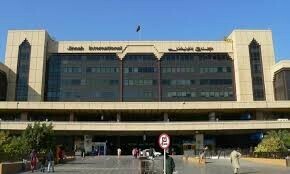UNITED NATIONS: Pakistan has said that it was sad to see some G20 nations allowing themselves to be used by India to portray a false sense of normalcy in occupied Jammu and Kashmir.
At a UN Security Council debate in New York on Tuesday, Pakistan’s UN Ambassador Munir Akram reminded the world body that its primary responsibility was “the resolution of conflicts and disputes in accordance with the principles of the UN Charter”.
“It is … sad to see some, but not all, of the Group of 20 representatives allowed themselves to be used in India’s attempt to portray a false sense of normalcy in occupied Jammu and Kashmir,” said the Pakistani envoy while participating in a debate “ensuring the security and dignity of civilians in conflict zones”.
India, which is hosting the 18th annual meeting of the G20 countries, held one of its events in the occupied Kashmir on Tuesday. China, Saudi Arabia, Egypt, Turkey and Indonesia boycotted the meeting as they see Kashmir as a territory disputed between India and Pakistan. Others participated.
Munir Akram says UNSC’s primary responsibility is resolution of conflicts in accordance with UN Charter
It marked the first time that a major international event was held in the disputed region since August 2019 when Indian Prime Minister Narendra Modi’s government scrapped Kashmir’s special status and split it into two federally-administered territories.
On Monday, the United Nations Special Rapporteur on Minority Issues, Fernand de Varennes, reminded the world that India was seeking to normalise the “brutal and repressive denial of democratic and other rights of Kashmiri Muslims and minorities” by holding G20 meetings in the occupied territory.
And on Tuesday, the New York-based Committee to Protect Journalists (CPJ) said press freedom remained in the region under attack even as India tried to project normalcy there.
Pakistan expanded the debate at the Security Council debate, pointing out that it was not possible to maintain normalcy in a conflict zone.
“There are over 250 million people who go to bed hungry each day. Seventy percent are in areas of armed conflict. The majority of them are children,” Ambassador Akram said.
“This nexus between hunger and conflict is well established and vividly visible in so many recent and contemporary conflict situations.”
He said that while the imperative of preventing, resolving and ending armed conflicts had never been so clear, the “council has kept adding new conflict situations to old and entrenched issues; and hunger has continued to grow”.
“This proliferation of conflicts causes poverty and deprivation that encompasses almost one billion people, one in every 8 humans,” he said. “And this happens mostly in the global South.”
Disagreeing with this approach, he said: “The primary endeavour in this Council … must remain the promotion and maintenance of peace and security and the resolution of conflicts and disputes.”
Ambassador Akram said that the key of securing peace and stability in our region was the just and peaceful resolution of the Jammu and Kashmir dispute in accordance with the provisions of the relevant Security Council resolutions.
“Deprivation and hunger are being imposed on the Kashmiri people by the suppression imposed by a 900,000-occupation army, massive violations of their human rights and the progressive expropriation of their properties and means of livelihood.”
Ambassador Akram also referred to the Special Rapporteur’s 15 May report, which warned of India’s attempt to normalise military occupation in Kashmir. The UN report reminded all that “the situation in Jammu and Kashmir should be decried and condemned, not pushed under the rug.” Pakistan also reminded the international community of the consequences of 40 years of conflict in Afghanistan.
“Almost 95 percent of Afghanistan’s population exists in extreme poverty. Even as we seek to ensure women’s rights, and end terrorism in and from Afghanistan, the world cannot allow the Afghan people to be consigned to prolonged poverty,” he said.
Published in Dawn, May 25th, 2023














































Dear visitor, the comments section is undergoing an overhaul and will return soon.